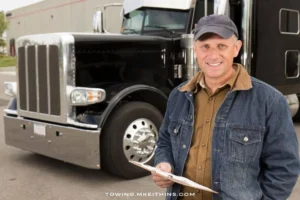Every business, regardless of size or industry, has its own specific needs and all specific needs require specific insurance. The same principle also applies to a towing and recovery company. Tow truck insurance is specifically tailored to address the associated risks that go with a towing operation.
A towing business provides valuable services to its community. Any towing company owner or would-be owner will need to consider that tow truck insurance is necessary for their organization. That said, the insurance needs of a tow company will not always match those of their competition. It’s for this reason you should be working with an independent insurance provider, such as Mike Keith Insurance, Inc., who will customize your insurance policy to meet your unique insurance needs.
Below, we will be taking a deeper dive into towing company insurance basics.
Who Needs Tow Truck Insurance Coverage?
Before we can go into tow truck insurance, we need to take a quick look at who actually needs tow truck insurance coverage. Besides general tow and recovery companies, there are other related service providers that need towing coverage. Among these, we can include the following:
- Roadside assistance companies
- Auto body shops
- Auto mechanic repair shops
- Salvage, recovery, and auction companies
Different Types of Insurance Coverage for Tow Truck Companies
Tow and recovery companies benefit from many different types of business insurance protection. However, with diversity also comes the pain of actually finding the ones that will best fit one’s needs and as importantly, contractual requirements. Nobody wants to pay for more coverage than they need, nor do they want to miss out on what’s essential and find out too late that it’s not there. Below are coverages needed for a towing and recovery company.
Liability Insurance Coverage Options?
Liability insurance, the largest driver of your insurance costs, protects businesses when they are deemed at fault for bodily injury and/or property damages that result in the course of their work. Below are some of the common liability policies that a tow and recovery company might need.
- Auto Liability
- Garage Keeper Liability
- Garage/General Liability
- On-Hook/Cargo
- Excess/Umbrella Liability/
- Hired and Non-Owned Liability
- Employment practices liability (EPLI)
- Cyber Liability
The importance of having the right kind of liability insurance cannot be overstated. Not only will it protect your business from the damages directed at your operation, but it also covers defense costs if/when you are sued.
What Should Tow Truck Insurance Include?
A typical tow policy will include the aforementioned liability coverage in addition to several other coverages bundled into what is referred to as a package policy. Coverages include: Auto Liability, Auto Physical Damage, Garage or General Liability, On Hook and Cargo, Garagekeepers, and Property coverages. Other coverages outside of the package to consider are: Workers Compensation, Excess Liability, and Employment Practices Liability.
- Auto Liability – When at fault in an accident with a 3rd party and there is resulting bodily injury and/or property damages, this is the part of the policy that responds. In addition, it pays to defend if/when the 3rd party involves an attorney. Typical limits of coverage begin at $1M.
- Auto Physical Damage – Comprehensive and collision coverage for power units and trailers listed on the policy.
- Medical Payments – Covers medical bills up to a limit for drivers and passengers in, on, or about an insured power unit or trailer.
- Uninsured or Motorists – If your tow truck is involved in an accident with an uninsured or underinsured motorist, this policy will cover injuries to you, your employees, and passengers when the uninsured or underinsured party is deemed at fault. It also covers any hit-and-run occurrences. In some states uninsured motorist coverage applies to property damage as well.
- Hired & NonOwned Liability – Affords coverage when a non-owned or rented power unit, auto, or trailer is used in the business operation.
- Garagekeeper – Provides coverage (comprehensive and collision) for customer autos while in the tow and recovery company’s care and control. Subject to deductibles.
- Garage Liability – Affords coverage when fault is assessed for bodily injury and property damages. Examples: slip and falls, when found to be at fault, on a tow company’s property, tire comes off an auto after it was changed, fire resulting from a jump start, property damage after an unlock, etc.
Several Tow Truck-Specific Policies
Aside from the coverages mentioned above, a professional towing service company will also consider the following policies:
- On-Hook Towing Insurance – This policy is specifically designed for towing businesses. It helps cover the repair or replacement costs due to damages sustained to “on-hook” vehicles or watercraft that you are towing. This policy typically covers damage caused by collision, fire, vandalism, theft, and other unforeseen accidents to property of others being transported
- Cargo Coverage –. This includes coverage for damage and/or theft of items inside the towed vehicles. Also, this provides coverage for equipment such as forklifts, tractors, and skid steers. This is another coverage that most tow truck companies should seriously consider.
- Commercial Property Insurance – This policy protects your building and personal property in addition to business interruption type coverage when an unforeseen loss happens
Workers’ Compensation Insurance
Another type of coverage to consider is workers’ compensation insurance. It protects your employees if they are injured, become ill, or are killed while on the job, performing their duties in the course of employment. Regardless of employee size, the need for workers’ compensation is real. Some states require this coverage based on the number of employees a company employs. We won’t get into W2 or 1099 classifications in this article but if the 1099 employee works only for a single operator and is under a single operators control, he/she has deemed an employee for purposes of Workers Compensation insurance and benefits whether derived from a work comp policy or out of pocket are owed. A tow truck driver will typically work in all sorts of unfavorable weather conditions and face numerous hazards while behind the wheel of your tow truck and alongside the roadway.
This type of insurance provides them and their families some peace of mind that, in the event of a misfortunate incident, their medical needs will be covered, and their income will be replaced if they are suddenly unable to continue working.
Excess Liability Insurance
This is an extra layer of liability protection provided when the underlying limits are not enough. It can extend over the Auto and Garage Liability coverages along with the Employers Liability portion of the Workers Compensation policy.
What’s The Cost of Tow Truck Insurance?
Like all other insurance types, tow truck insurance rates are different from one state to another and are specific to zip codes and population densities. That said, other variables can affect the total cost of your tow truck insurance. These will include the following:
- The total number and type of tow trucks you own – This can include single axle, light, medium, and/or heavy-duty dual or triple axle, rollback carriers, underlift carriers, and more.
- The type of services provided by your tow truck business – Your insurance rates can also be influenced by what you offer, be it roadside assistance, repossession, recovery, salvage, repair, impound, rotation, etc.
- Hours of service – Insurance costs can also differ if you provide 24/7 service or have a 9-to-5 schedule.
- What you tow – While some towing companies focus only on vehicles, others also include RVs and motorhomes, boats, motorcycles, trailers, and even heavy equipment.
- Safety Program – Any safety programs implemented within the organization will also influence insurance rates.
- Implementation of telematics – GPS Tracking, ECM, ELDs, Automated Event Recorders (AERS)
- Driver Qualification Files – State and federal safety carrier regulations require these.
- Loss History – The number (frequency) and value (severity) of claims within a specified time period (3-5 years) is used by most insurance carriers much like a credit report is used by a bank when pricing coverage.
Need Tow and Recovery Insurance?
With over 50 years of experience, Mike Keith Insurance, Inc. is the Agency of Choice for many Tow and Recovery businesses. Our unparalleled service and “A” rated carrier base allow us to provide you with the most reasonable price and best coverage you need. Contact us today, and we will work together to design a program that will best suit your needs!






